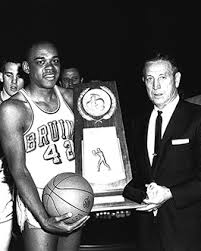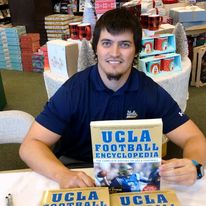The NBA Finals date back to 1947 (when they were known as the Basketball Association of America Finals) and the very 1st NCAA tourney was held in 1939. Olympic basketball competition is even older: it debuted as a demonstration event in 1904 and the men’s version became a medal sport in 1936, with the women finally getting their chance to go for the gold in 1976. The United States has dominated Olympic basketball competition from the start: the men have won 15 gold medals in the 18 tournaments they have participated in during the past 84 years, while the women have won 8 gold medals in the 10 tournaments in which they have competed during the past 44 years. Those of you who were looking forward to the 2020 Olympics opening ceremonies in Tokyo on July 24, 2020 will have to wait an extra 364 days, as the coronavirus caused a postponement until July 23, 2021. Due to the absence of college basketball since mid-March, HoopsHD’s Jon Teitel decided to fill the void by trying to interview as many prior Olympic players/coaches as possible so that you have something to read this summer while not watching the Summer Games. We continue our coverage by chatting with UCLA historian Spencer Stueve about Walt Hazzard winning an NCAA title and gold medal in 1964.
Walt was born/raised on the East Coast and won 2 city titles while going 89-3 at Overbrook High School in Philly: what made him choose Santa Monica College to start his college career, and why did he decide to transfer to UCLA? His 1 year at Santa Monica College was a bridge to UCLA. He chose UCLA out of high school but had to finish up some academic work at SMC before enrolling at UCLA, which is just 7 miles away. Freshmen were not eligible for varsity basketball at the time so he did not miss anything at UCLA: he just finished his required courses and then transferred.
He played for Hall of Fame coach John Wooden: what made Wooden such a great coach, and what was the most important thing that Walt ever learned from him? Wooden never focused on winning and losing: he relentlessly preached being the best that you are capable of becoming. This is the lesson that resonated best with most of his players. There was no need to compare yourself to someone else: just be the best that you can be.
In the 1962 Final 4 he scored 12 PTS/5-10 FG in a 2-PT loss to eventual champion Cincinnati (Paul Hogue had 36 PTS/19 REB): where does that rank among the most devastating losses of his career? It was the toughest loss for UCLA during his college career. That 1962 team was the best UCLA team in history prior to the championship seasons that shortly followed and Coach Wooden thought that the 1962 team was a championship-quality team.
Take me through the magical 1964 season:
Even though it was Wooden’s 16th year in Westwood, assistant coach Jerry Norman convinced him to implement a zone press for the 1st time: what impact did that have on the pace that they played at, and how crucial was that to their success that year? A full-court press was 1 of the staples of Wooden’s coaching philosophy prior to the 1964 season. He had used it off-and-on throughout his career but in 1963 he decided to make the press defense a primary defensive weapon for his team. They were small/quick/skilled but not very big. UCLA ran almost exclusively a full-court man-to-man press in 1963 to some success. In 1964 they implemented the zone press…and it was the most lethal defensive weapon that college basketball had ever seen up to that point. UCLA had the perfect team to use it with a pair of star guards in Hazzard/Gail Goodrich who benefitted the most.
In the NCAA tourney title game he scored 11 PTS in a win over Duke en route to being named tourney MOP: how was he able to play his best when it mattered the most, and how were they able to go 30-0 that year? Another Wooden-ism that he preached to his team was: “Be at your best when your best is required.” Hazzard and the 1964 Bruins took this to heart. Hazzard also had some hard-nosed Philadelphia grit to his game: he was a tremendous defensive player and got after it. No team really stood a chance in 1964: UCLA’s skill level was so far superior to every other team that it created tremendous mismatches. Their full-court press eventually wore teams out and Hazzard/Goodrich were able to capitalize.
He was national POY/2-time All-American: what did it mean to him to receive such outstanding honors? Hazzard was a team guy, as was required for anyone who played for Coach Wooden. What he was able to do was set a standard of individual excellence, which translated to team success. He was the 1st star player during the championship years at UCLA. Gail Goodrich/Lew Alcindor/Sidney Wicks/Bill Walton/Jamaal Wilkes/Dave Meyers/Marques Johnson and more were all able to follow in his footsteps by earning individual acclaim within the framework of the team’s larger goals.
He played for team USA at the 1964 Olympics: what did it mean to him to represent his country, and what did it mean to him to win a gold medal? I cannot really answer this question because there is not much out there about his thoughts on his Olympic experience.
After averaging 9.3 PPG/4.1 APG in 1967 with the Lakers, he was traded to Seattle and scored a career-high 24 PPG, averaged 6.2 APG, and was named an All-Star: how did that change of scenery allow him to become 1 of the best PGs in the league? Seattle was an expansion team and although he was only there 1 season it was a memorable 1. The best explanation for his increased production is that the Sonics put the ball in his hands and asked him to score more than the Lakers asked him to. The Lakers had a very deep roster including Elgin Baylor/Jerry West/Gail Goodrich/Rudy LaRusso.
In 1971 he and his wife Jaleesa (a former Bruin cheerleader) began to embrace Islam after spending time with fellow UCLA alum Kareem Abdul-Jabbar, then he started to use the name Mahdi Abdul-Rahman as a player on the Hawks: what role did religion play in his life (as the son of a Methodist preacher), and do you agree with his assessment that the name change cost him various opportunities both during/after his playing career? Religion obviously played a very large role in his life. He changed his name and was a Muslim for the rest of his life. He was initially introduced to Islam by Lew Alcindor (aka Kareem). As a player he was never comfortable with his perception of how others felt about his conversion. He used his birth name as a professional courtesy so I do not agree that it cost him opportunities. He played for 10 seasons in the NBA and coached for 8 seasons in college with limited success.
After being hired as head coach at UCLA in 1984 he had a 3-PT win over Indiana coach Bob Knight in the 1985 NIT title game and was named conference COY in 1987 after winning the 1st-ever Pac-10 basketball tourney: what did it mean to him to win a title at his alma mater, and what made him such a good coach? Hazzard was very well-liked at UCLA but he was not considered a good coach. He was able to win the Pac-10 title once and the Pac-10 tournament once, but UCLA began to slide during his tenure.
He passed away in 2011: when people look back on his career, how do you think that he should be remembered the most? I think that he is rightly remembered as the 1st great player to win a championship at UCLA. He helped lead the Bruins into an era of prosperity never seen in college basketball either before or after. He was a great passer/defender/leader on 1 of the greatest teams of all-time. The 1964 team was perfect…and Walt Hazzard was 1 of the main reasons why.


